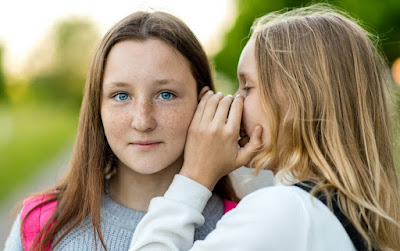Can a Minor Be Sued for Defamation? Understanding the Legal Implications
Defamation is a serious legal issue that can cause significant harm to a person's reputation. But what happens when the alleged defamatory statement comes from a minor? Are they exempt from the consequences of their actions due to their age? In this article, we will explore whether a minor can be sued for defamation and examine the legal implications surrounding this complex issue.
- Defamation Defined:
Defamation refers to the act of making false statements about someone that harm their reputation. It can take two forms: slander, which involves spoken defamatory statements, and libel, which involves written or published defamatory statements. To prove defamation, the following elements generally need to be established:
a) A false statement was made about the plaintiff. b) The statement was published or communicated to a third party. c) The statement caused harm to the plaintiff's reputation. d) The statement was made negligently or with malicious intent.
- Legal Standing of Minors:
Minors, individuals under the age of 18, are generally held to a different legal standard than adults. Their capacity to understand the consequences of their actions and their ability to discern right from wrong is considered limited. However, this does not mean that minors are entirely exempt from legal liability.
- Can a Minor Be Sued for Defamation?
The ability to sue a minor for defamation varies depending on the jurisdiction and the specific circumstances of the case. In many jurisdictions, minors can be held accountable for their defamatory statements, albeit with certain limitations.
Courts often consider the maturity and intelligence of the minor, as well as their understanding of the harm caused by their statements. Minors who display an understanding of the consequences and intent to harm may face legal consequences.
- Potential Limitations and Considerations:
a) Parental Liability: In some cases, parents or legal guardians may be held responsible for the defamatory actions of their minor children, particularly if they failed to exercise reasonable supervision or control.
b) Damages: While adults can claim monetary damages for harm caused by defamation, minors may not have the same financial resources to pay substantial amounts. In such cases, courts may order alternative remedies, such as a public apology or community service.
c) Context and Freedom of Expression: Courts may take into account the context of the statement and whether it falls within the realm of protected speech, such as opinions or fair comment. Minors expressing their genuine beliefs or engaging in political discourse may receive different treatment from those spreading malicious falsehoods.
- Conclusion:
The question of whether a minor can be sued for defamation does not have a straightforward answer. While minors may have some degree of legal protection due to their age, they can still be held liable for their defamatory statements in certain circumstances. The decision ultimately rests with the courts, which evaluate the specific facts and the minor's understanding of the consequences of their actions.
If you find yourself in a situation involving defamation, it is crucial to consult with a qualified attorney who can provide guidance based on the laws applicable in your jurisdiction.




Post a Comment
0 Comments